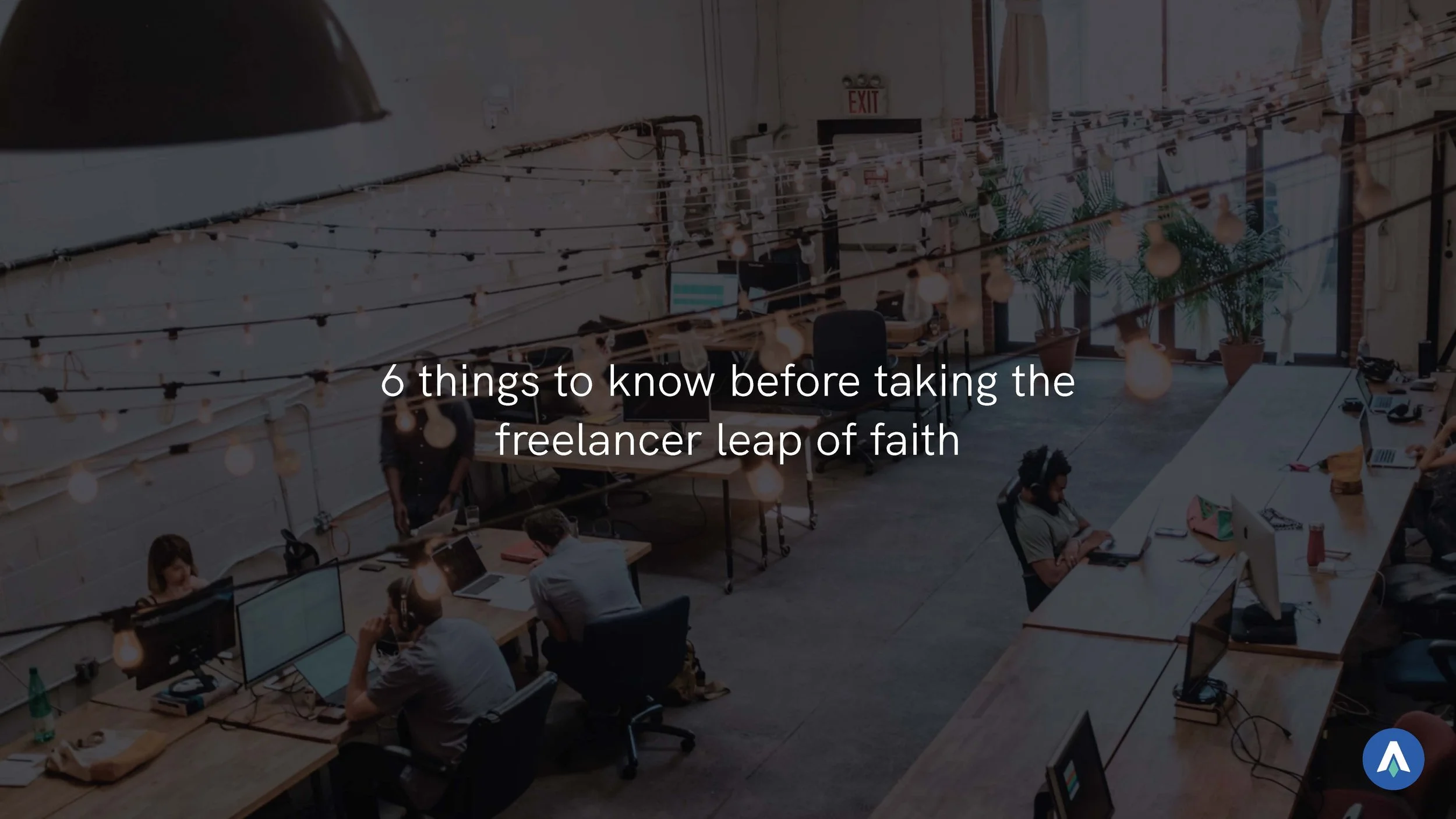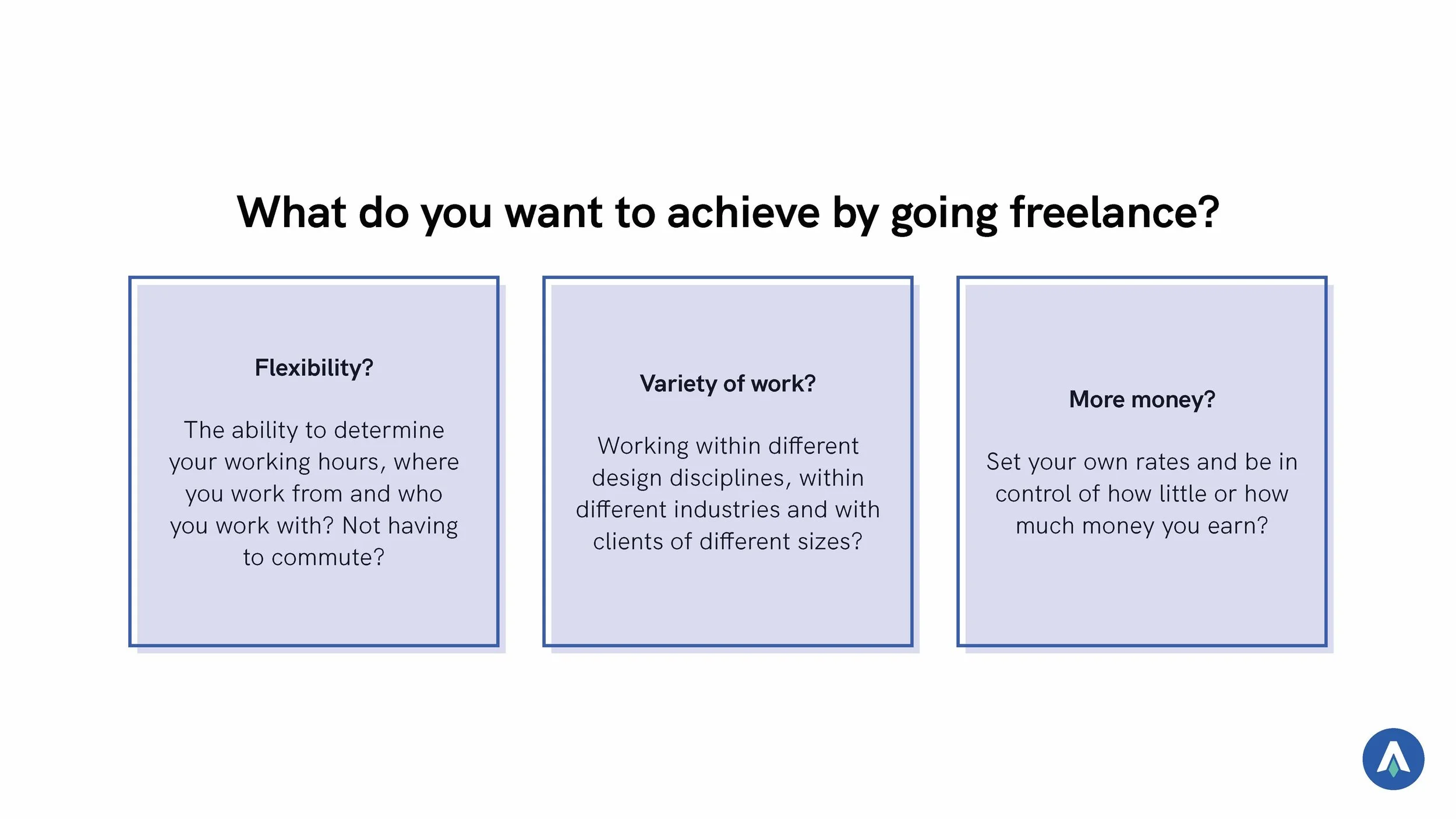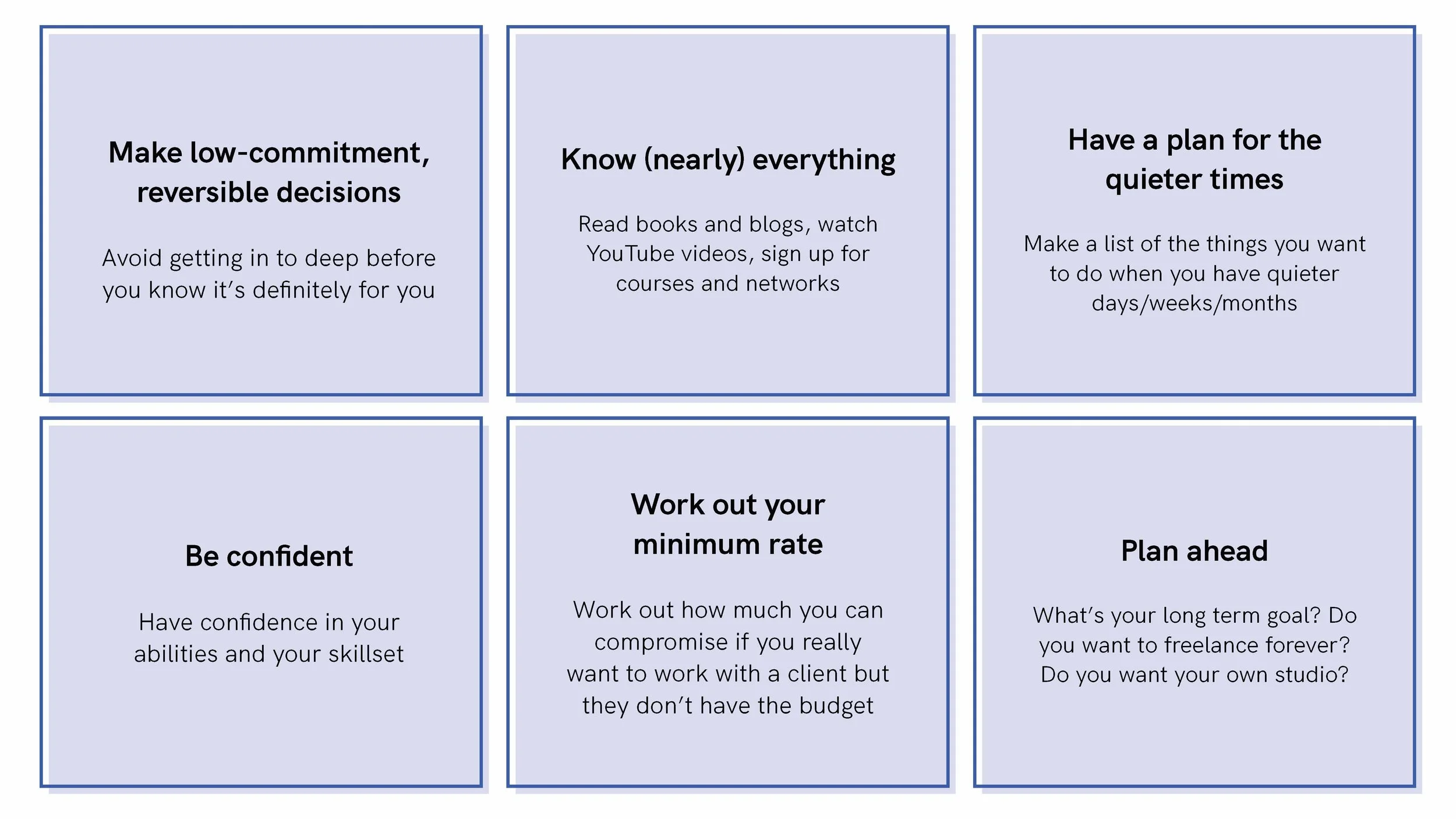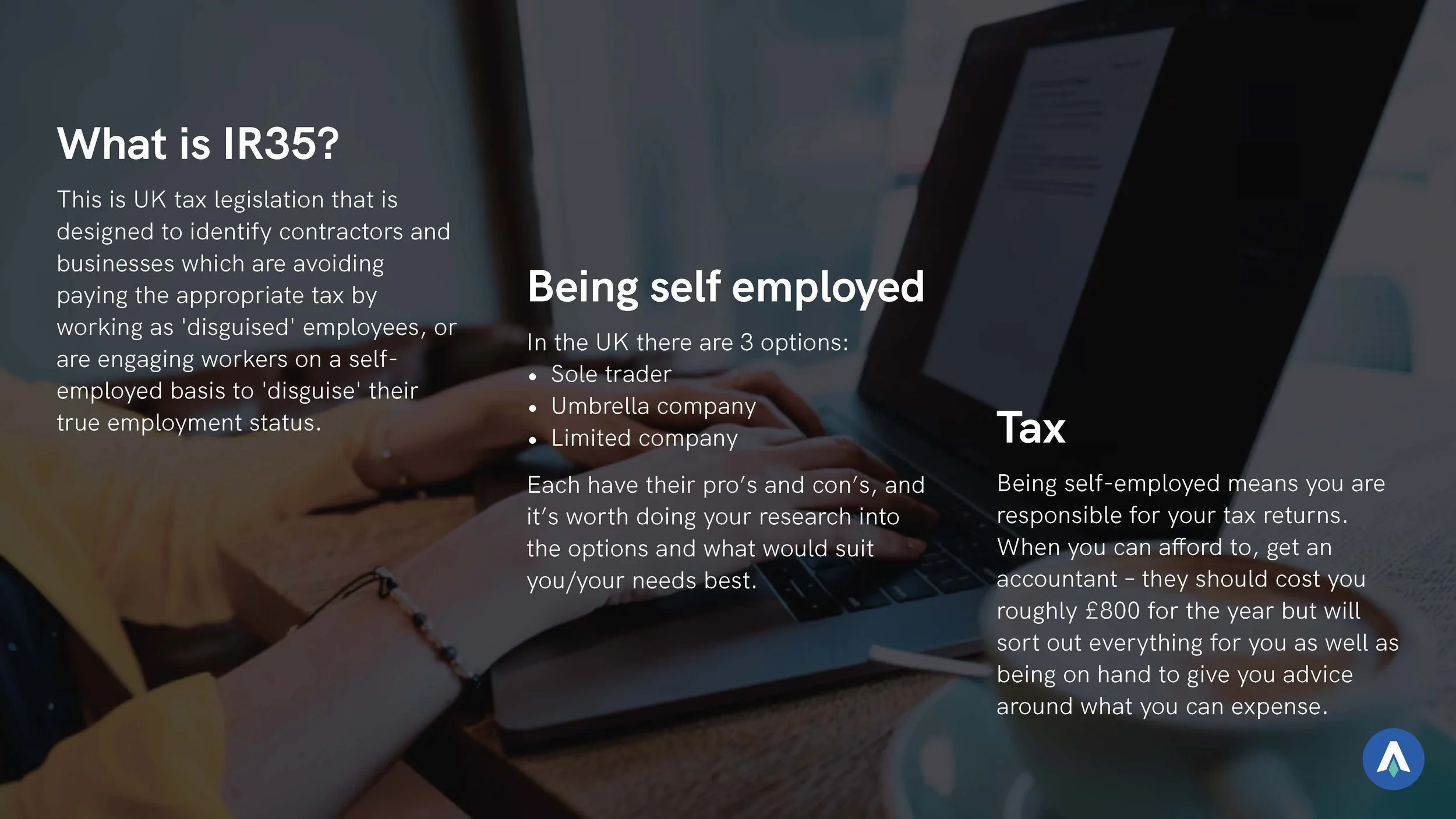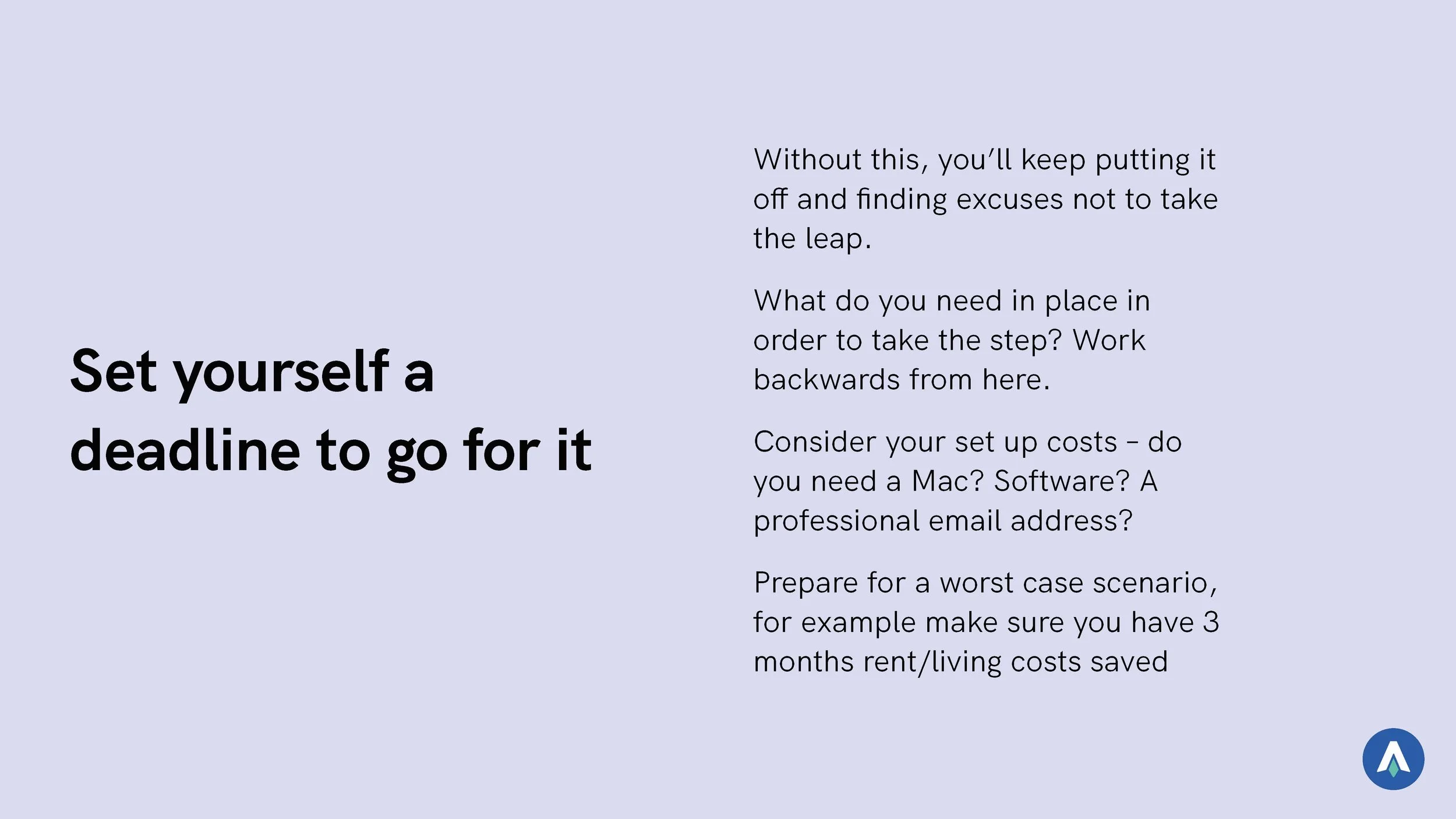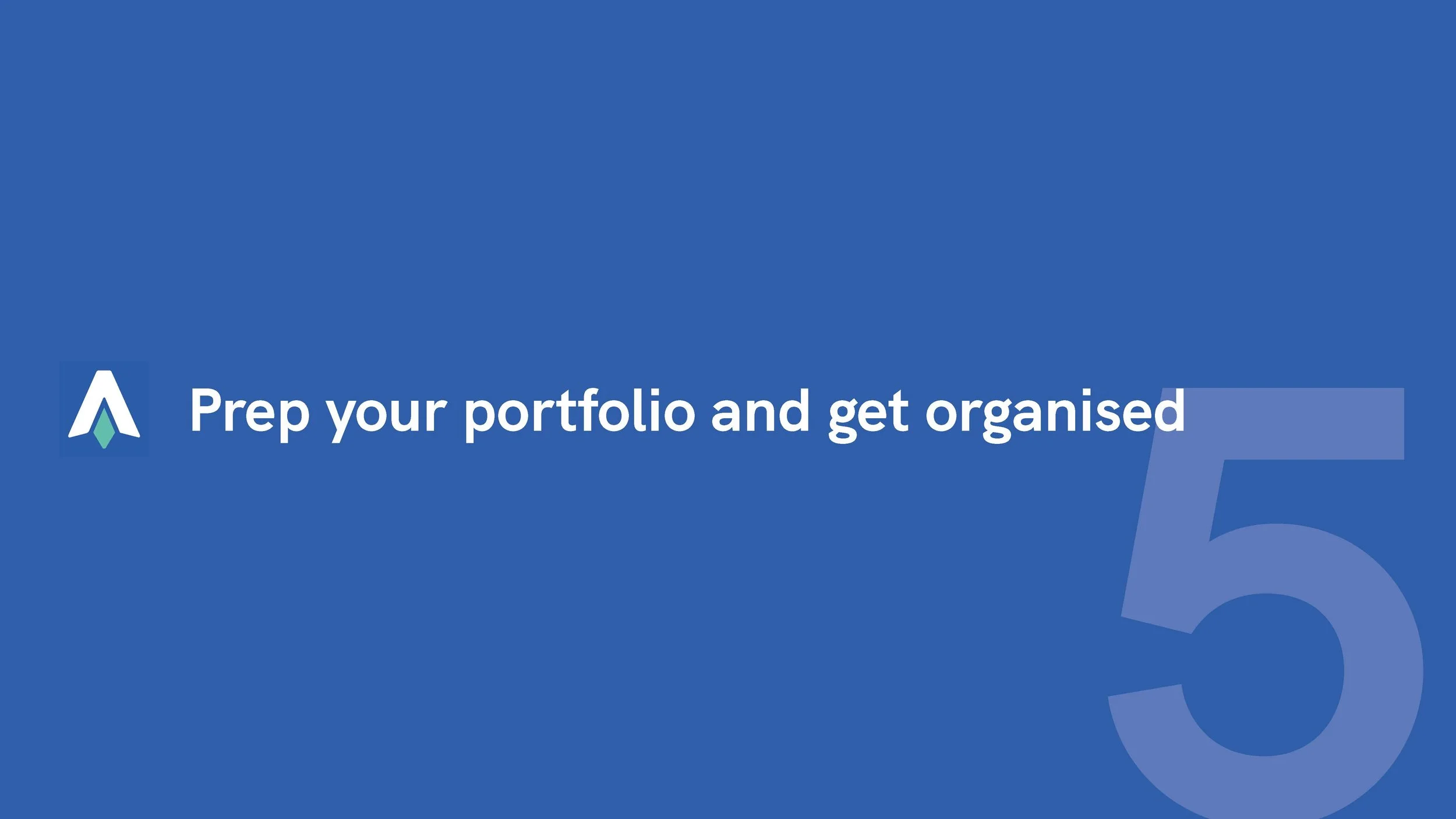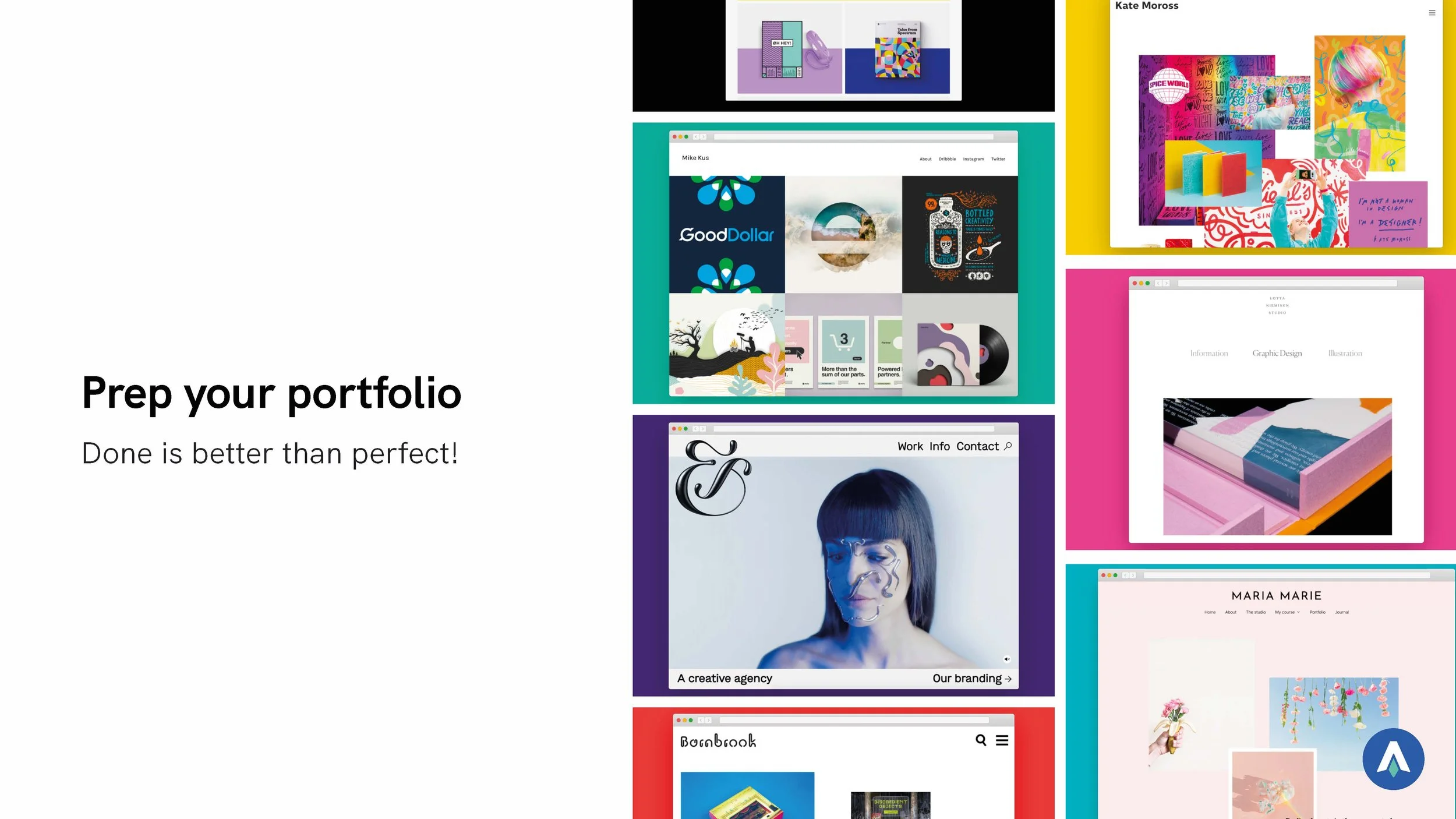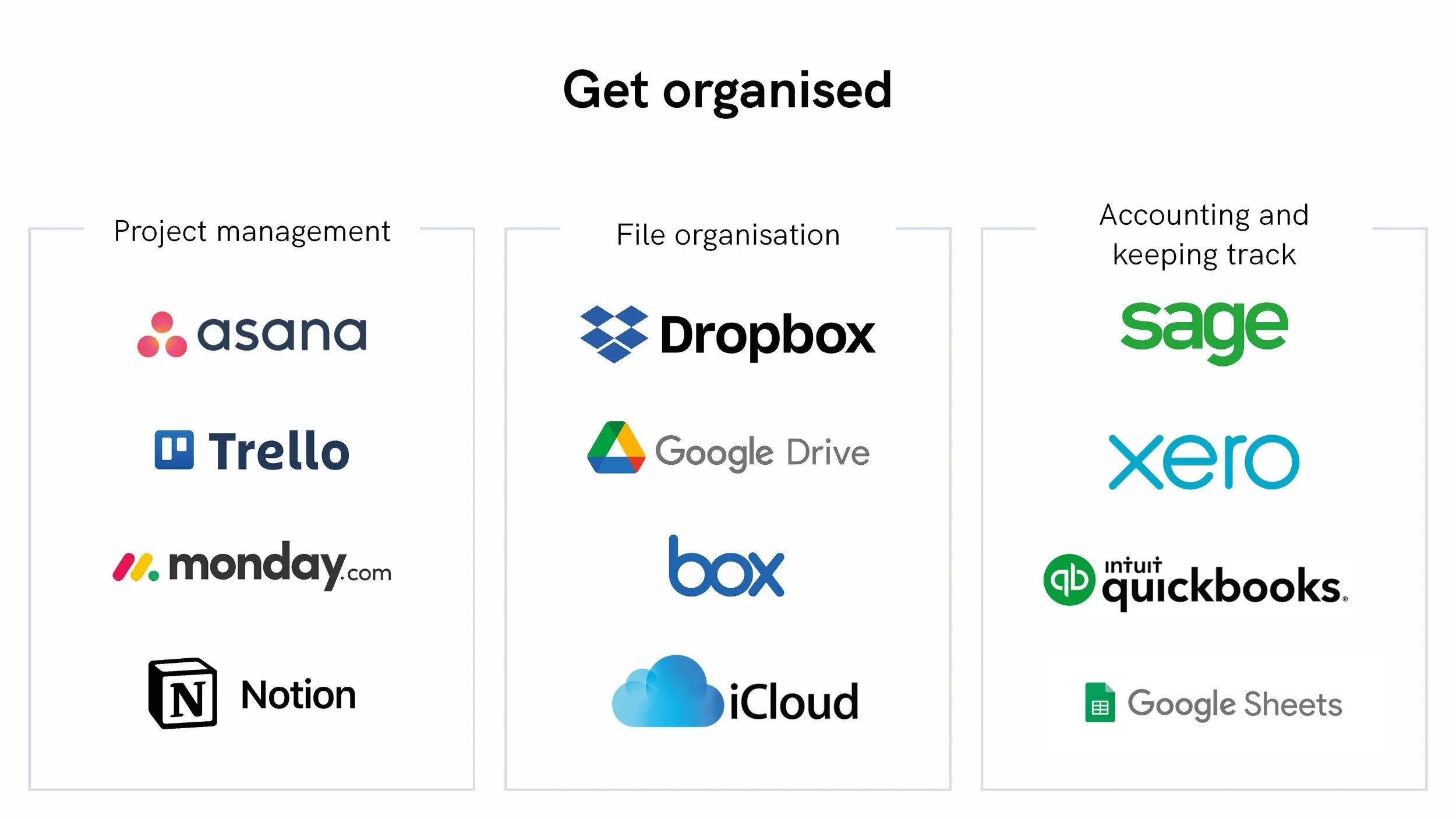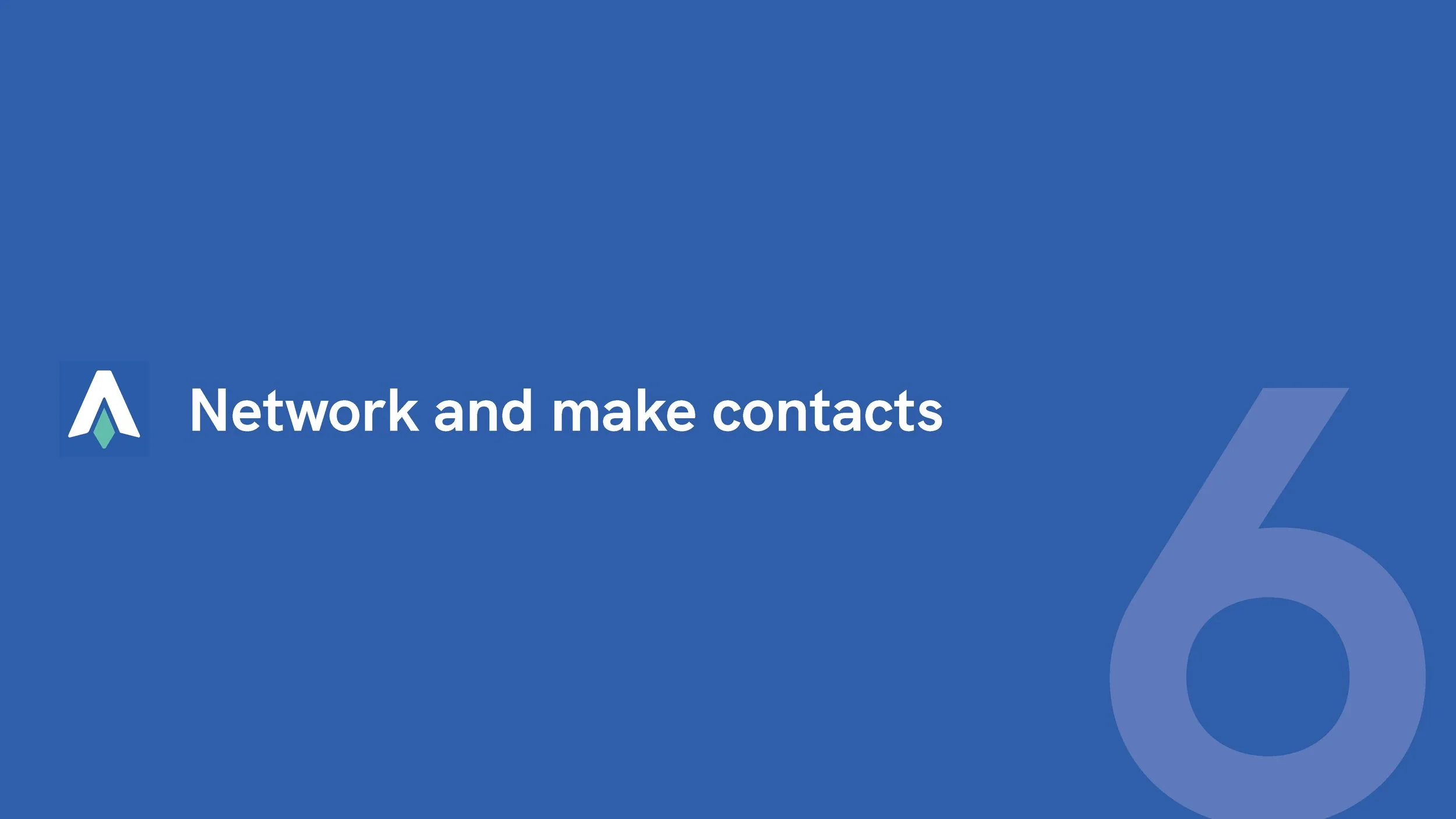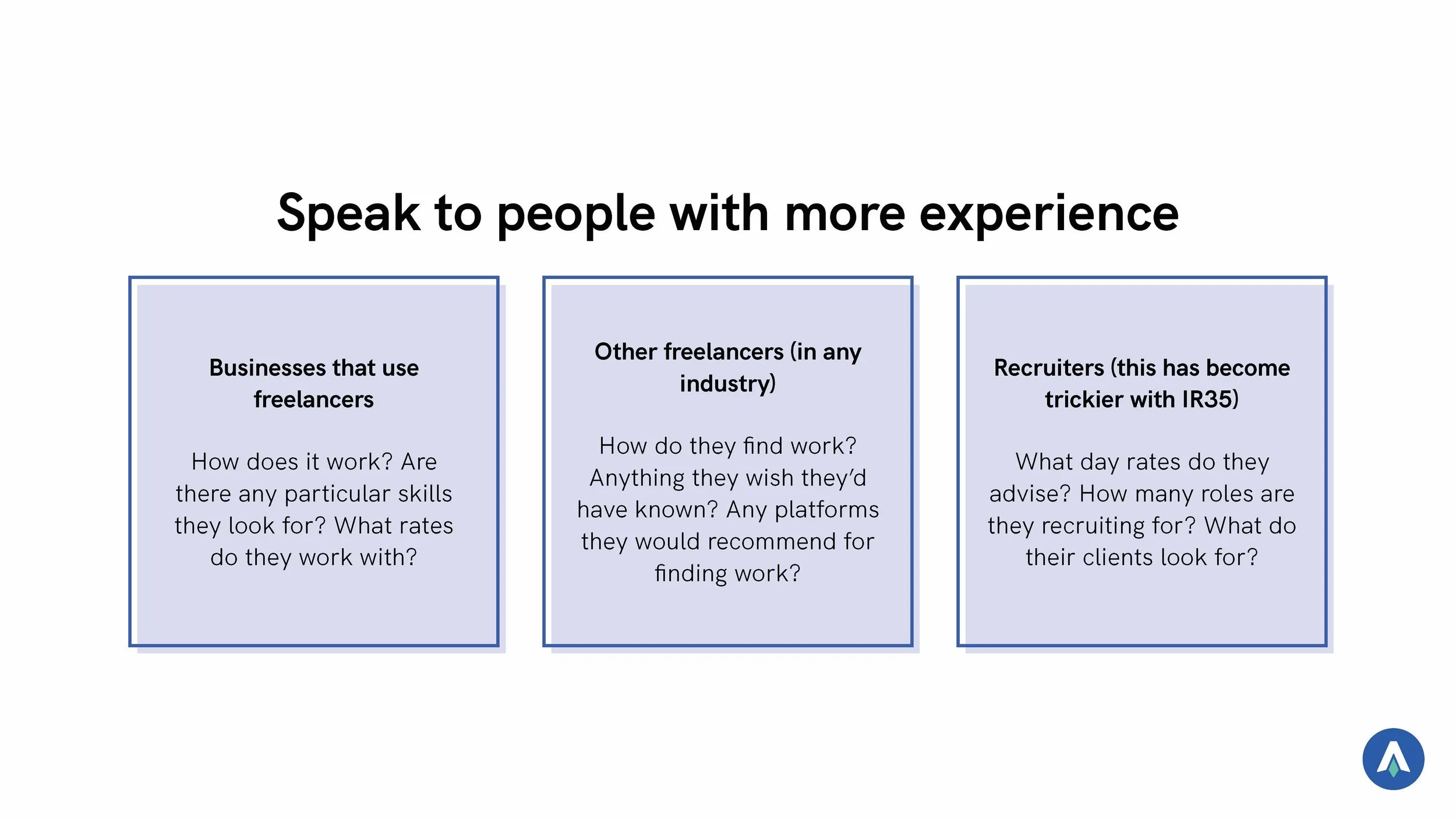A guest lecture: Freelancing and starting your own design studio
Have you ever wondered what it's like to run your own studio and have your own team of designers? Earlier this year, I was invited back to the University of Reading to give a guest lecture to current Graphic Communication students discussing just that – the highs, the lows, and everything in between! The lecture was given as part of the Baseline Shift series the university offers, where alumni are invited back to uni to give an insight into their career and life after uni.
The lecture covered the 6 things I wish I had known before going freelance, and the best ways to tackle the good, the bad and the ugly. There’s a huge misconception that freelancing provides you with a lot of freedom – you can work whenever you want, for whoever you want and earn a lot of money. But if that were the case, wouldn’t everyone do it?
Be purposeful
Before anything else, work out why you want to be a freelance designer. Is it for the money? The freedom? The flexibility? The variety of work? These are all valid reasons but as with anything, you truly get out what you put in and it can be a lonely existence. Having a purpose keeps you motivated and striving to be the best you can be – and to be completely honest, if you’re only in it for the money and flexibility, you probably won’t get too far! My purpose was to create a business that could provide an end-to-end service. I noticed that brands would work with lots of different agencies that each specialised in a different discipline and it became harder and harder to keep the visual identity/tone of voice/etc consistent across all these businesses. Wouldn't it be great if one agency could do it all? A business that could know a client's brand better than it knew itself and nail every brief? This was my purpose for starting my business and has kept me motivated every single day.
Be practical
Be conscious of what might happen if you don’t find any clients straight away, or you do and the work falls through at the last minute. How much money do you need to pay your rent and bills? Make sure you have a cushion to support you if either of these examples were to happen to you. It’s important to not make any big commitments or have knee-jerk reactions to situations that could affect your quality of life – a prime example of this is quitting your job before you have your ducks in a row. Have you weighed up all the options? Do you have a plan B? Having a plan for quieter times keeps you motivated and proactive (and likely your website up to date!). Fresh out of uni, you’re unlikely to have all the design skills you need to be successful or the experience working in a business and within a larger team.
Sort out the boring stuff
Taxes… Contracts… IR35… NThese aren’t the reasons you decided to go freelance but are crucial to the success of it. IR35 is a new legislation that determines whether a client should be paying you as an employee (are they determining where you work, the hours you work, how you do your job? If so, you should be on payroll and HMRC will think this too). There are 3 options when being self-employed in the UK; sole-trader, umbrella brand or limited company. They all have pros and cons, so work out what is best for you – and if you can afford to, work with an accountant to sort out your tax returns. Contracts should always be put in place before you start work (even if you’re working for a friend of a friend!) as they guarantee that you will get paid – there are many free and paid-for options available.
Set yourself a deadline
A deadline to go for it is crucial. It could be a date that you will hand your notice in at your full time job – but it doesn’t have to be time related. It could be when you get your 3rd freelance client or it could be when you’ve made a certain amount of money as a freelancer (potentially enough to build that cushion for the quieter times!).
Network and make contacts
Speak to anyone and everyone before you make the decision to go freelance – this could be recruiters who work within creative industries, other design freelancers or companies who use freelancers. Find out how they work – how do they submit briefs? What rates do they work with? How often do they use freelancers? Are there specific skill sets they look for? It’s likely all freelancers will have experienced similar problems or have things they’d wish they’d known, and they’ll always be happy to share these with you. Keep LinkedIn up to date with what you’re doing and work you’ve completed to raise awareness. You can also use Instagram to gain exposure and it’s often much easier to keep socials up to date than maintain your website.
Go for it!
Taking these steps will hopefully give you the insights you need as to whether or not freelancing is the right decision for you. It’s very important to weigh up the pro’s and con’s and focus on why you want to be a freelancer – there’s a lot of plates to spin when you decide to go self employed!
A couple of questions I received from students
Q: What do you hope for the future of launch?
A: To grow the studio (in terms of reputation, service offering, size of team, revenue, the list goes on!) whilst always remaining true to our values and never forgetting what we do. We pride ourselves on providing fantastic design services of the highest quality and that must always remain!
Q: What was your favourite project?
A: Too hard to say… We only work on projects we believe in and know we can do a great job on, so we are always learning a lot and growing individually and as a team as we go. It would be impossible to pick just one!
‘It was an insight into a field of design I did not know about. Lucinda’s journey was very inspirational and I appreciated the fact she was down to earth and truthful with the harder aspects of the job. ‘ – student
‘Lucinda’s honest, open discussion of freelancing and her business was incredibly insightful.’ – student
I also wanted to say a big thank you, both for the talk - it’s really inspirational for current students to see what our graduates are achieving as designers in the real world - and for giving opportunities to your fellow Reading graduates (say hi to Ben and Giles from me!). Finally, congratulations on Launch - you guys are producing some awesome stuff!
Super impressed with your great talk. As well as the inspiration, you also shared some very thoughtful practical advice for students — just what they needed to hear. Thank you!
Really enjoyed your presentation – lots of good advice for students and I’m sure incredibly inspiring for them too. Thanks for coming back to share!

